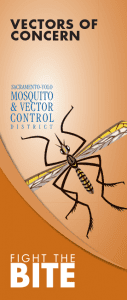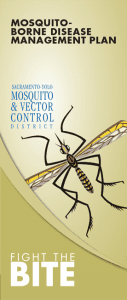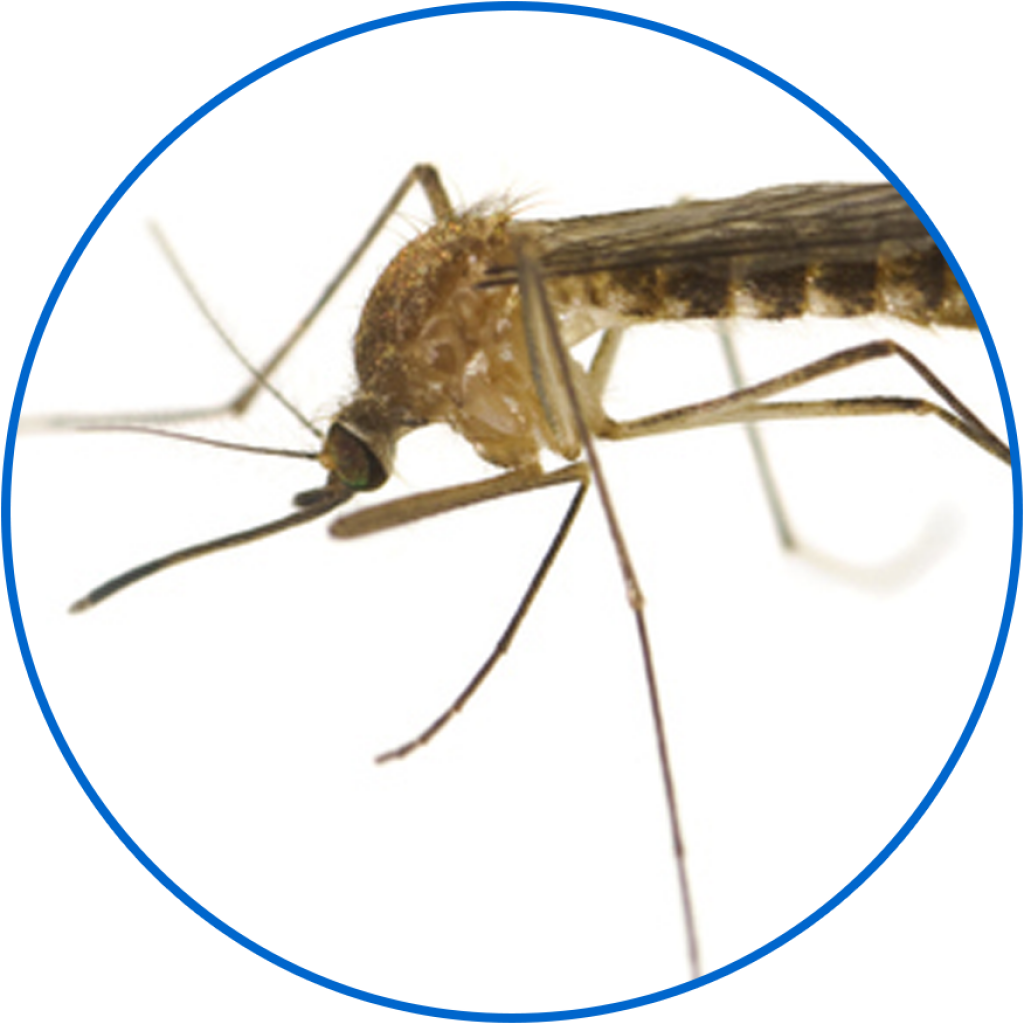WEST NILE VIRUS
West Nile virus (WNV), is a disease that is transmitted to humans, birds, horses, and other animals, by the bite of an infected mosquito. West Nile virus is maintained in a mosquito – bird cycle that is made more efficient by the preference of mosquito vectors for feeding on birds. This preference increases the chances that the virus will be transmitted to a bird that is capable of infecting more mosquitoes. Humans and horses are considered dead-end hosts for WNV because when infected they may become sick, but they do not infect more mosquitoes.
WNV is now considered endemic, or established, in Sacramento and Yolo counties and has been detected in all 58 counties of California. The virus was first isolated in the West Nile District of Uganda in 1937, and arrived in the United States in New York City in 1999. The virus quickly spread across the country and was first detected in California in 2003. West Nile virus is now the most common mosquito-borne (transmitted) disease in the United States.
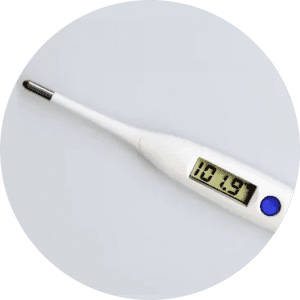
SYMPTOMS
The majority of individuals (about 80%) who are bitten by an infected mosquito develop no symptoms. Roughly 20% of people develop the flu-like symptoms of West Nile fever including:
• Fever
• Headache
• Fatigue
• Nausea
• Vomiting
• Body aches
• Occasional skin rash
• Eye pain or swollen lymph glands
Most people with West Nile fever will recover completely, but fatigue and weakness can last for weeks or months. In roughly 1% of individuals West Nile fever develops into a severe illness affecting the central nervous system. Symptoms may include high fever, seizures, muscle weakness, disorientation, vision loss, change in mental status, and paralysis. Recovery from severe illness may take weeks or months and some effects to the central nervous system may be permanent. About 1 in 10 people who develop severe illness will die.

RISK FACTORS
There are two types of WNV risk factors to consider. The first are activities and behaviors that expose a person to mosquito bites and the second are personal characteristics that may lead to severe illness.
Being outdoors increases exposure to infected mosquitoes. Therefore, the more time spent outside, the greater the chance of being bitten by an infected mosquito and contracting West Nile virus. Wearing repellant and long pants and sleeves can reduce your risk of exposure.
Severe illness can happen at any age however, people over 60 are at greater risk. Additionally, certain people with medical conditions such as cancer, hypertension, kidney disease, diabetes, or organ transplant recipients may have increased risk of developing severe illness. For more information about West Nile virus, please see our WNV FAQ page.
WEST NILE VIRUS ACTIVITY
To see the latest West Nile virus activity in Sacramento and Yolo counties, click here.
To see the West Nile virus activity throughout California, please click here.
WNV TRANSMISSION CYCLE
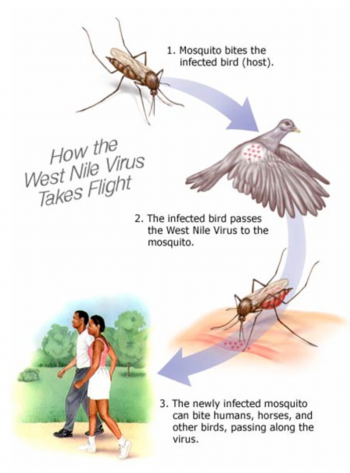
1) Mosquito bites an infected bird (host)
2) Infected bird passes West Nile virus to the mosquito (vector)
3) Newly infected mosquitoes bite birds and continue the cycle, or pass the virus to humans and horses


